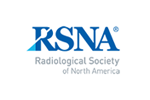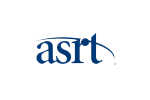Suspected New-Onset and Known Nonacute Heart Failure
Heart failure occurs when the heart is unable to pump enough blood. Nonacute heart failure means that the heart has gradually become weaker over time.
For people who are thought to have nonacute heart failure, a transthoracic echocardiogram resting (test using sound waves to create an image of your heart) or chest x-ray is usually appropriate.
To determine whether the heart failure is because the heart is too weak to pump (reduced ejection fraction) or because the heart is too stiff to fill with blood (preserved ejection fraction), a transthoracic echocardiogram is usually appropriate. Heart MRI without and with contrast (dye injected into your blood) or heart MRI without contrast is also usually appropriate. The following tests may be appropriate: nuclear ventriculography (injected radioactive dye tracks blood flow through your heart), coronary arteriography (x-ray of the heart arteries), or a CT scan of the arteries (CTA) using contrast.
To determine whether heart failure is ischemic (damaged from poor blood flow) or nonischemic (not due to poor blood flow), CTA using contrast is usually appropriate. Also usually appropriate are heart MRI without and with contrast, heart vasodilator stress MRI without and with contrast, single-photon emission computed tomography (SPECT) or SPECT/CT rest and stress (test using a treadmill or medications to put the heart under stress while creating a 3-D picture of heart), coronary arteriography, heart PET/CT, and transthoracic echocardiogram stress. Heart inotropic (using medication) stress MRI without and with contrast, heart inotropic stress MRI without contrast, and heart MRI without contrast may be appropriate.
This page was reviewed on July 15, 2022



